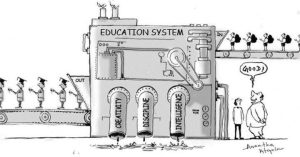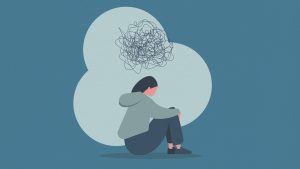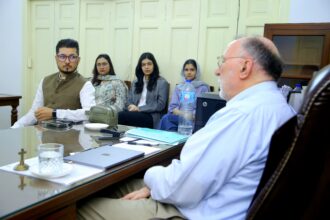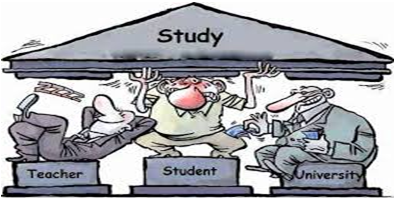As the examination season draws closer, the streets of Pakistan bustle with students. Coaching centres, print shops, and stationeries hit peak sales as academic shortcuts become the new trend. Behind this frenzy, however, lies something far more sinister.
In Pakistan, the three career choices seem to be medical, engineering, and failure. The popular educational view equates students’ grades with their worth. The family’s choice of profession outweighs that of the individual, conformity outweighs creativity, and academic performance outweighs individual well-being. This situation raises a vital question: Does an education system like this build capable individuals, or does it handicap them mentally?
Students and Suicide
The media frequently reports suicides in educational institutes, though the topic is often treated as a fleeting headline destined to be forgotten. The mental burden of academic pressure continues to lie on students’ shoulders. While some manage to withstand it, others succumb to negative coping mechanisms such as drug abuse, delinquency, and self-harm.
According to statistics, a staggering 38.2% of the youth commit suicide purely due to academic reasons. These numbers represent ambitious young people failed by a system that is in dire need of reform.
A Breakdown of the Education System

The seeds of dehumanization are sown surprisingly early. From the junior-most level to the senior-most, students are being ground by the education system like millets in a grinder. Unfortunately, we are part of a nation that suffers from a phenomenon more commonly recognized as “study mania.”
Each summer, as students up to the 8th grade leave school for vacations, they are provided with a 5–7-page handout titled “Vacation Work.” This includes a detailed description of compulsory tasks to be completed before the school reopens. Non-compliance usually results in utter humiliation.
This approach ignores students’ developmental needs by depriving them of rest, resulting in burnout and frustration.
The pressure intensifies further as students proceed to high school. Long workdays that often extend into nights and rare holidays create a battlefield situation for students to persevere through. Yearly board exams put students through a year-long cycle of back-breaking academic effort. Yet, they’re given only a week’s worth of relief in the name of a break before being recalled to school to prepare for another round of exams. This relentless rote race prevents students from recovering and results in diminished productivity and a severe lack of motivation.
Universities serve as an advanced level of the same mental torture, with weekly assignments, graded quizzes, projects with clashing deadlines, and never-ending examination series. This vicious cycle bleeds into off days and steals personal time from students.
Students vs. Teachers & Administration
One of the biggest contributors to the dehumanization of students is the culture of unquestioned authority among teachers and the administration. Their horrible behaviour ranges from insulting students publicly over simple mistakes to severe corporal punishment, which sometimes results in injuries. Students are stripped of their dignity over minor infractions, developing a permanent fear of failure within them that often undermines their confidence and self-belief.
Steps Towards a Humane Education System
Prioritizing Mental Health
Education was never supposed to be about how well a student can sustain pressure. The well-being of a student must always be above grades and achievements. Institutes must integrate policies focusing on mental health and provide counsellors for students.
Cultivating Empathy
All stakeholders—teachers, students, administrators, and policymakers—must emphasize the need for empathy. Recognizing the humanity in each student is the first step toward creating a nurturing environment.
Restructuring the Framework
Concepts such as vacation work should be eliminated so students have free slots to interact with people and spend time with their families. The frequency of assignments and projects should also be reduced to prevent burnout. Moreover, extracurricular activities should be encouraged to allow students to refresh themselves and enjoy.

Conclusion
Pakistan’s education system is a crisis that demands immediate attention. It is crucial for all stakeholders of the nation to come together and save this sinking ship. Our youth is our future, and driving them to the edge is a destructive decision.
References:













Hello Kid! You are doing a wonderful job 👏